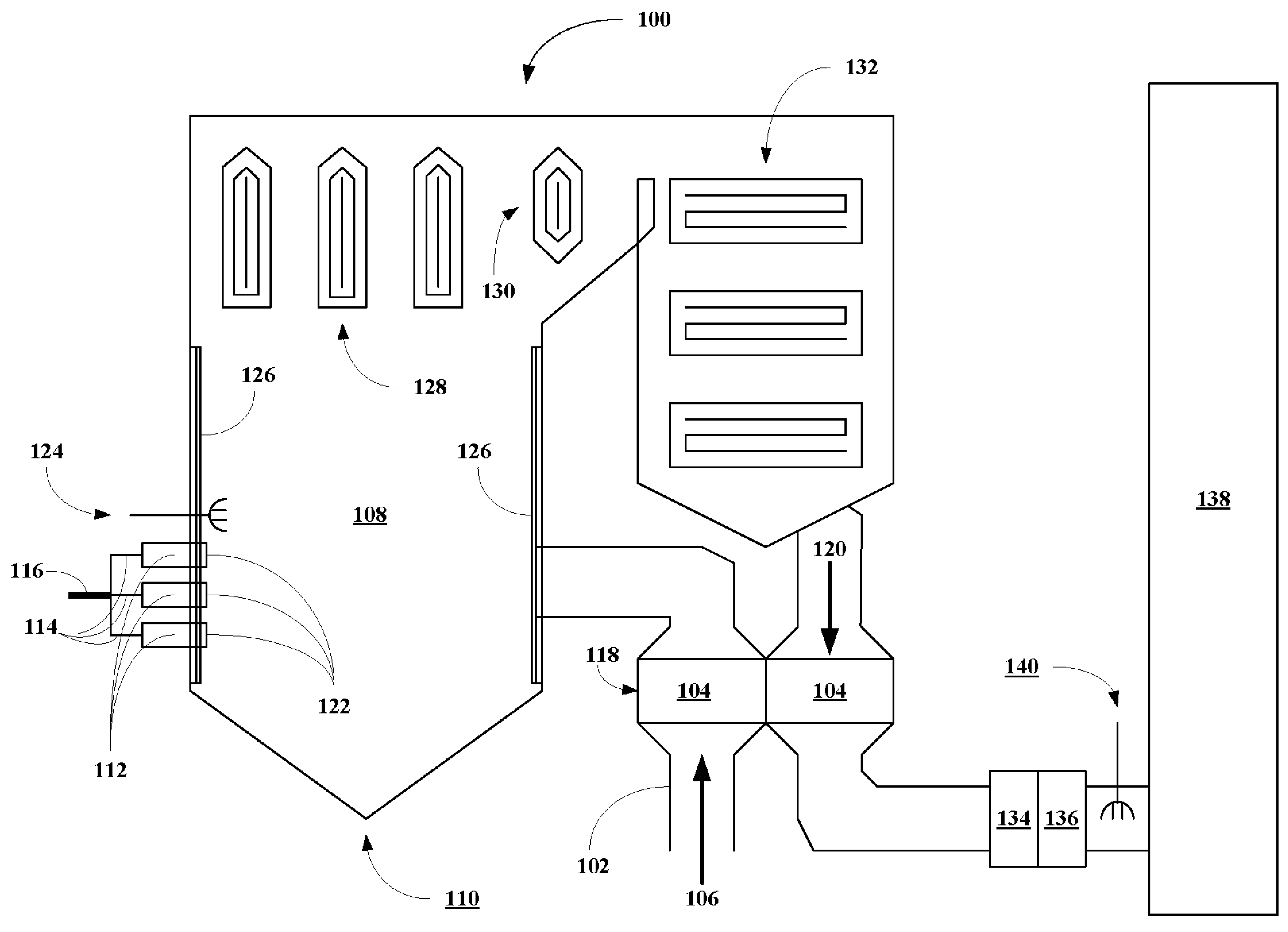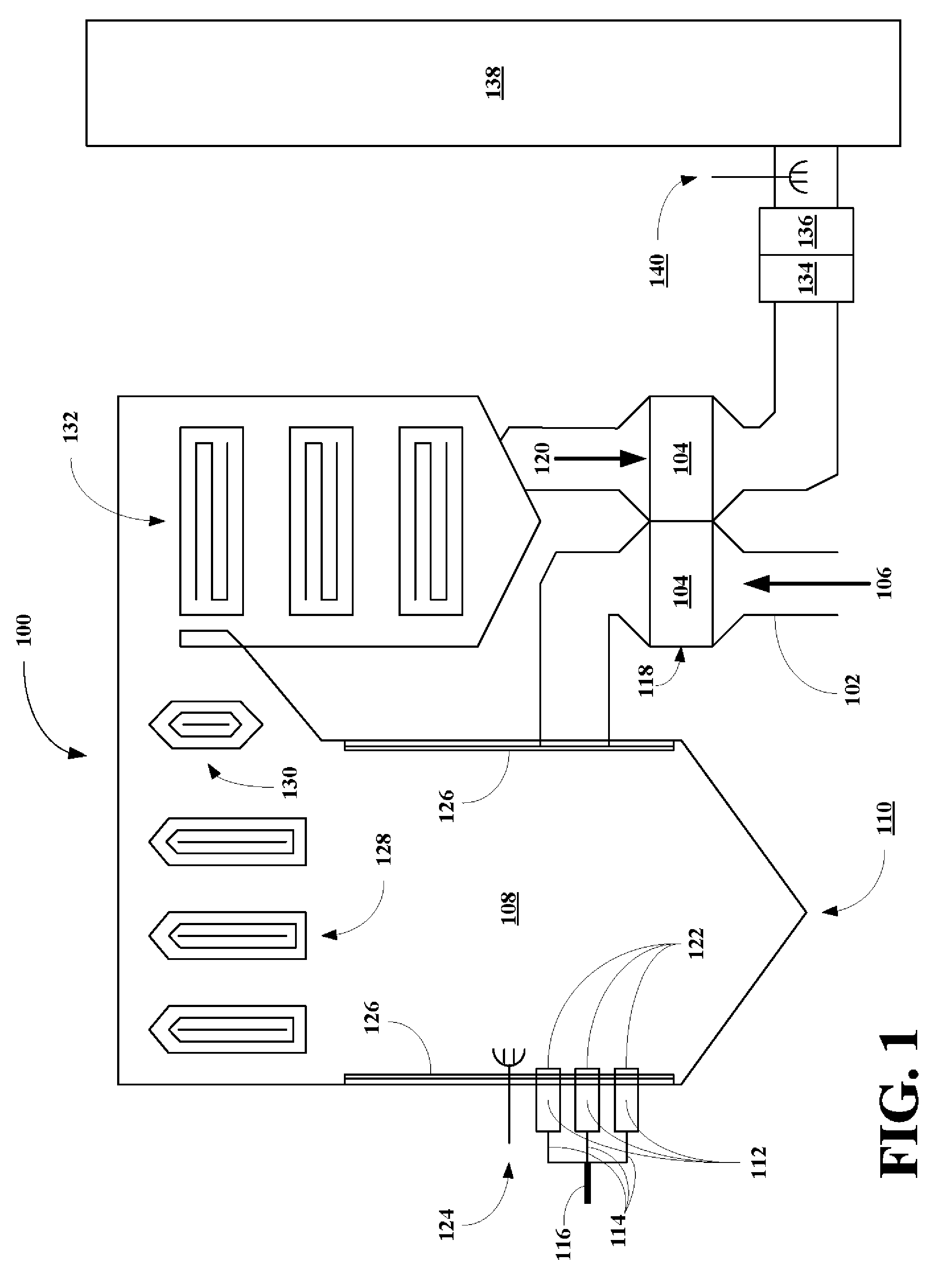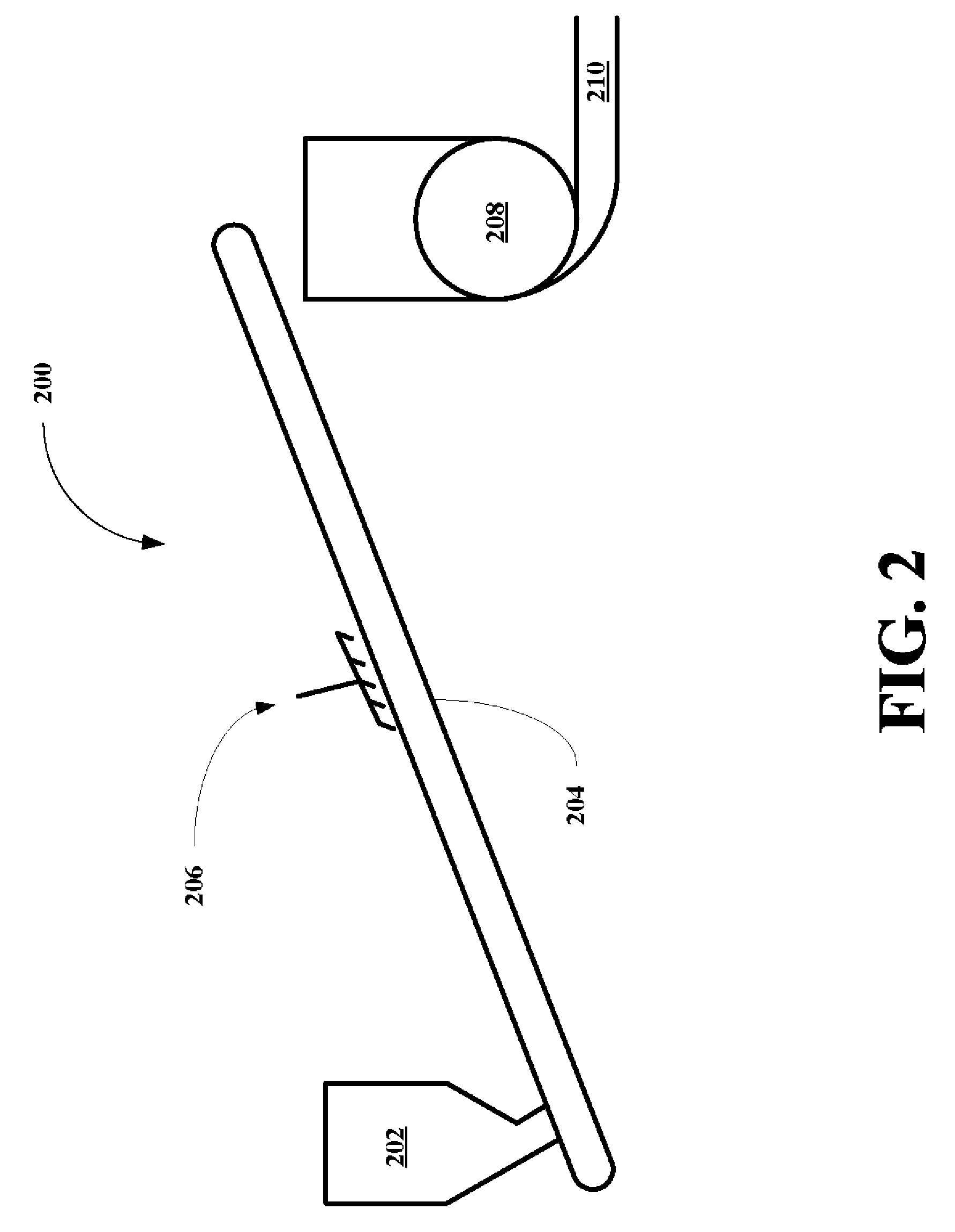High flash point additives for treating carbon-based fuels
a technology of additives and carbon-based fuels, applied in the direction of biofuels, fuels, waste-based fuels, etc., can solve the problem of dangerous vapors, and achieve the effects of high boiling point solvent, lower flash point, and high flash point materials
- Summary
- Abstract
- Description
- Claims
- Application Information
AI Technical Summary
Benefits of technology
Problems solved by technology
Method used
Image
Examples
example 1
[0057]A suitably sized three neck reaction flask was fitted with stirrer, thermometer, heating source, and condenser system. To this were added first 100 grams of a high boiling solvent such as Calsol 100, 200 grams of a low boiling solvent, and 115 grams of oleic acid. To this stirred solution were then slowly added 472 grams of magnesium hydroxide. Not all of the magnesium hydroxide will necessarily dissolved at low temperatures, but the magnesium hydroxide should be well dispersed. Heat was then applied to just remove the 200 grams of the low boiling solvent and any water that is formed during the reaction of the magnesium hydroxide and the high boiling solvent and oleic acid and processing. Typically the temperature will need to be raised to about 400° C., but no less than 350° C. Upon cooling, a sufficient amount of the high flash point solvent was added (generally, about 100 grams of Calpar 325) to reduce the magnesium content to about 30.0 wt. %. Upon cooling, about 641 grams...
example 2
[0058]A standard formulation for a nanoparticle magnesium overbase compound was followed. Following the normal dilution the flash point was measured. It was 65° C. using a Pensky Martens Closed Cup method (ASTM D-93). This material had the standard properties associated with this additive.
example 3
[0059]Another standard formulation for a nanoparticle magnesium overbase compound was followed. However, in this case the normal dilution solvent was not used. Instead additional quantities of the high flash point solvent was used. The flash point in this case was increased to 160° C., using again the Pensky Martens Closed Cup method. Most of the standard properties of this material were seen with only a minor increase in product viscosity, still within specifications.
PUM
| Property | Measurement | Unit |
|---|---|---|
| particle size | aaaaa | aaaaa |
| particle size | aaaaa | aaaaa |
| particle size | aaaaa | aaaaa |
Abstract
Description
Claims
Application Information
 Login to View More
Login to View More - R&D
- Intellectual Property
- Life Sciences
- Materials
- Tech Scout
- Unparalleled Data Quality
- Higher Quality Content
- 60% Fewer Hallucinations
Browse by: Latest US Patents, China's latest patents, Technical Efficacy Thesaurus, Application Domain, Technology Topic, Popular Technical Reports.
© 2025 PatSnap. All rights reserved.Legal|Privacy policy|Modern Slavery Act Transparency Statement|Sitemap|About US| Contact US: help@patsnap.com



